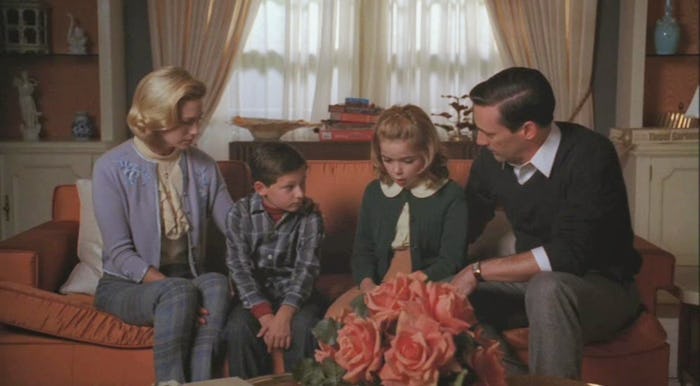Life

9 Ways To Tell Your Kids You're Separating Without Making Things Worse
The only thing more difficult than going through a divorce, is going through a divorce with children. Regardless of how young or old your children are, the idea of sitting down to tell them that your family is going through a difficult time and that you're pursuing a different way of being a family — one where you and your partner separate — is hard. Though it can be hard to even think about, there are several ways to tell your kids you're separating that you'll want to keep in mind.
I spoke with relationship counselor and therapist Elisabeth Graham to get her advice on the best ways to tell your children that you and your partner are separating, because as a relationship counselor, she's an expert at helping couples decipher how to navigate their relationships — including their relationships with their children. "Put your children first," Graham tells me in her first piece of advice. "It can be hard to work together when your relationship is falling apart, but working together in order to help your children understand what is happening, and why it is happening is more important than any negative emotions you may be feeling." Read on to see how Graham recommends you and your partner handle telling your children you're separating.
1Keep A United Front
"Presenting a united front is important," says Graham. "Your children will feel more secure if the news is coming from both of you, rather than one of you." Graham says there is less anxiety involved when you present the matter to your children as a team, and helps send a clear message that this is what's best for your entire family at this time. "Telling your children separately can not only send conflicting messages, but your children will often hear conflicting messages from the two adults your child trusts most, which can heighten an already stressful time for your children." Though it can be tough to work with your spouse during this time, it's important for your children to approach the situation together.
2Don't Share Too Many Details
Some details should be left between you and your partner. "There's no reason to share too many details with your children," says Graham. "They'll want an explanation as to why you're separating, but keep any adult details to yourselves." According to Graham, providing too many details can burden your child with bearing too heavy a load during a separation.
3Avoid The Blame Game
"There is no room for blame when you're presenting your separation to your children," says Graham. "It may be hard to keep your emotions in check, but it's very important to stay neutral during any conversation you may have with your children concerning the separation, or else your children may indirectly feel as though you're pressuring them to choose between you and your spouse." When in doubt, keep your cool for the kids. Graham recommends practicing using neutral language, so that your conversations with your children will come easier to you.
4Make Sure They Know This Is Not Their Fault
"The most important part of any separation is to make sure your children know it is not their fault," says Graham. The reasons why you know you're separating and the reasons you provide your children for the separation can be completely different, according to Graham. "Keep your mindset on your kids, and be very sensitive to all conversations surround the separation." Graham recommends making it very clear to your children that they are not to blame, and says that finding a neutral reason to present to your children that doesn't place the blame on you or your spouse is generally the best way to go.
5Avoid Using The Word 'Divorce'
"Avoid using the word divorce unless you and your spouse are 100 percent certain about it," says Graham. It's important to ease your children into the arrangement, and to not lead them down the road of divorce if there's a chance you and your partner may reconcile.
6Timing Is Everything
"Choose a time when you are your partner are both prepared to discuss the matter in a civil matter, and when you're both emotionally prepared to support your children," says Graham. Finding support from other family members may also help during this tough time. You may want to reach out to your child's guidance counselor or teacher as well. Make sure you choose an otherwise steady and reliable time for your child to break the news. According to Graham, when one or more changes are already happening (i.e. grade change, large tests, sport team tryouts), their stress may increase exponentially.
7Tell Them What The Future Looks Like
Having specifics to tell your children about the future will help alleviate any extra anxiety that a split may cause. "Be as specific as possible when explaining to your children how their lives will change," says Graham. She recommends having a specific plan for everything from living arrangements, to school pick up and drop off. The more you can reassure your child of, the better.
8Rehearse With Your Partner
Nothing is worse than getting caught in a tough conversation with nothing to say. "Rehearse what you're going to tell your children with your partner more than once," says Graham. "The more you say the words out loud, the easier the conversation will be."
9Stay Calm
"No matter what happens, stay calm," says Graham. "Your children are intuitive, and they will pick up on whatever energy you're presenting." Remember that your kids are looking to you for cues as to how to handle the news. Graham says that it's natural, and it's okay, for you to grieve with your children. But keeping your temper, your negative emotions, and your personal feelings in check will help not only you and your partner, but ultimately your children in the long run.